Gender equality, equity, and social inclusion are priorities for the entire SERVIR network. SERVIR’s collaborative approach to engaging communities integrates gender considerations and the needs of underrepresented communities into service design. Additionally, SERVIR’s approach to strengthening the capacity of women and girls–often excluded from science, technology, engineering, and math (STEM) careers–is designed to close the gender gap in the Earth sciences.
The SERVIR network works to make geospatial information technologies and professions more gender responsive, inclusive, equitable by:
- Integrating gender considerations in service planning through inclusive program design and applying insights from gender analyses.
- Using remote sensing and geographic information systems (GIS) to deliver development impact to all members of society (including underrepresented groups characterized by gender, ethnicity, age, and/or social status).
- Fostering a community of women leaders and gender champions in SERVIR and creating a working environment that gives equal opportunity regardless of gender.
- Empowering women and girls to explore STEM fields through workshops and outreach events.
- Engaging with men and boys as positive agents of change to champion women’s equality, participation, and leadership within the SERVIR network and where it works.
NASA and USAID recognize that efforts to address climate change are more effective when they are responsive to the unique needs and contributions of diverse social groups. As noted in the USAID Climate Strategy Equity and Inclusion Principle: “USAID will center its actions in the context of the diverse communities in which we work and will engage local, marginalized, and underrepresented groups as agents of change.” Similarly, NASA’s Policy Statement on Diversity, Equity, Inclusion, and Accessibility for NASA’s Workforce and Workplaces notes “advancing societal equity and removing barriers for the underserved and underrepresented within the Agency and throughout the world.”
SERVIR has been actively developing tools to support equity within its global Earth observation work. The SERVIR Network Gender Strategy highlights priority approaches for gender and social inclusion in Hub activities, underscoring i) SERVIR’s commitment to integrating gender and social inclusion into geospatial services, and ii) training of women and girls in STEM and geospatial technologies. To guide the integration of gender equity and social inclusion considerations into service design, SERVIR collaborated with Advancing Gender in the Environment (AGENT) to develop the Gender Analysis Tool. The novel tool is customized specifically for SERVIR’s service planning approach rooted in co-development with local stakeholders.
Examples of SERVIR’s gender work
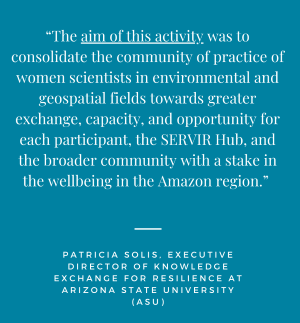 SERVIR is partnering with Arizona State University on a mentoring and geospatial skills development program to empower emerging female experts in environmental science and geospatial technologies in the SERVIR network. This women’s economic empowerment program incorporates mentorship, training, and practical experience.
SERVIR is partnering with Arizona State University on a mentoring and geospatial skills development program to empower emerging female experts in environmental science and geospatial technologies in the SERVIR network. This women’s economic empowerment program incorporates mentorship, training, and practical experience.
In the Hindu Kush Himalaya region there is a dearth of women researchers and technologists. SERVIR has hosted a series of Empowering women in Geospatial Information Technology (WoGIT) trainings for women from diverse institutions in Afghanistan, Bangladesh, Bhutan, India, Myanmar, Nepal, and Pakistan. The training has provided hundreds of participants with basic knowledge and skills in Earth Observation and geospatial information technology. The training materials are customized based on the participants’ subject knowledge and needs, and country-specific challenges.
-
Three Lessons on Inclusive Climate Action in Southeast Asia
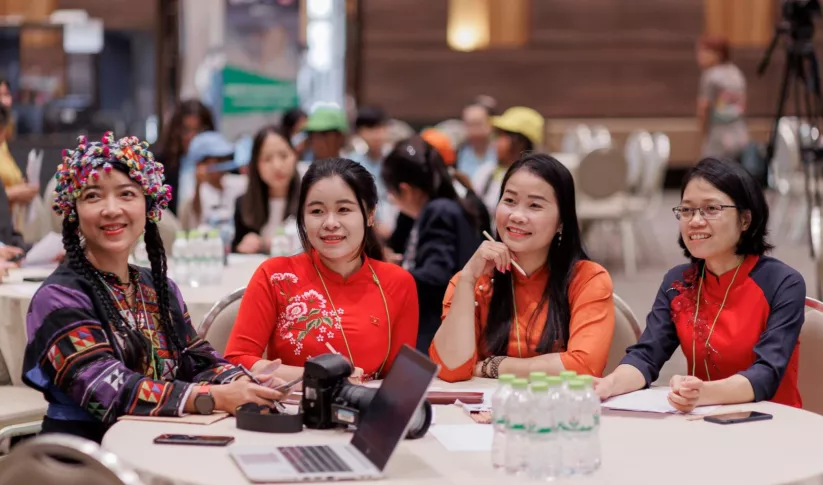
SERVIR Southeast Asia convened nearly 100 participants from five countries, for an Inclusive Climate Action Workshop in Chiang Mai, Thailand this February that included representatives of Indigenous communities, women’s groups, and even kids. Here are just a few takeaways from that week.
-
Geospatial Training by Women, for Women
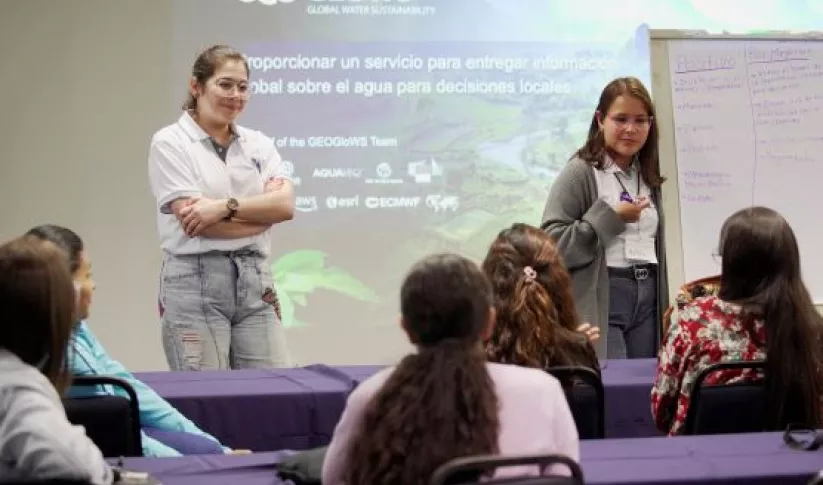
Because climate change disproportionately impacts women and girls, Earth science cannot be fully effective in addressing climate issues without including the realities and unique knowledge of women. Unfortunately, many women are excluded from participating in both the field of Earth science and in community decision-making.
-
Why Gender Equity Matters in Applied Earth Science: A SERVIR Miniseries
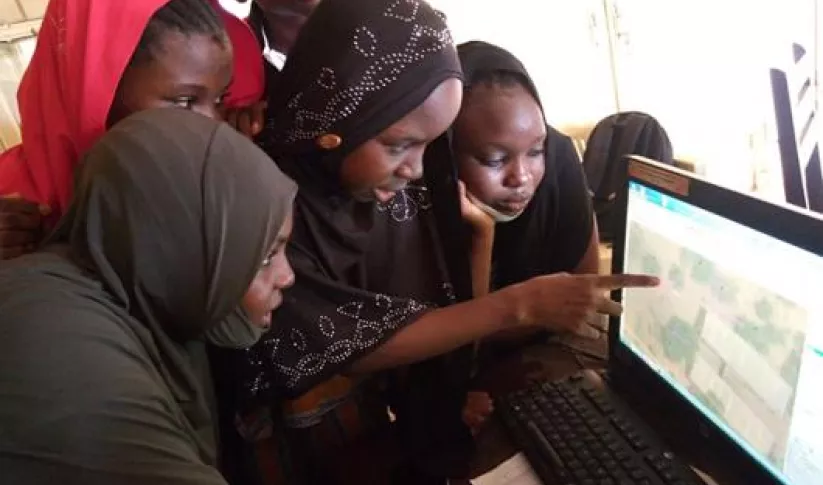
In this miniseries, we explore why gender matters in applied Earth science, and how we can integrate gender more intentionally into geospatial work.
-
SERVIR Gender Analysis Tool
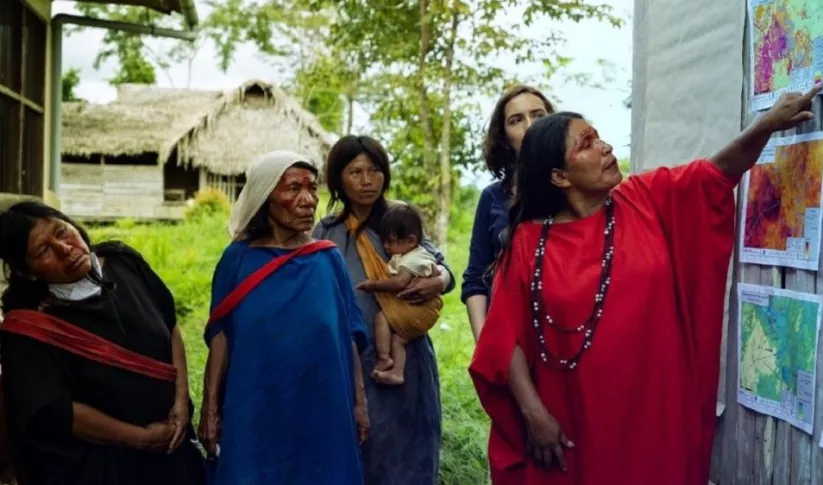
This Gender Analysis Tool provides clear guidance on a foundational step for service design and programming, to contribute to SERVIR’s goals of ensuring that women, along with men, are realizing equal benefits from SERVIR’s geospatial services.
-
Closing the STEM gender gap
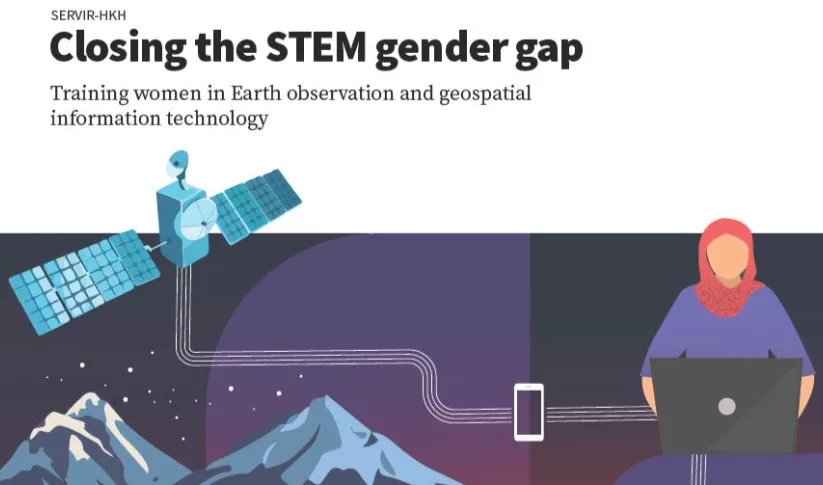
Between 2018 and 2021, SERVIR HKH trained 410 women in “Empowering women in GIT” to bridge the technology and gender gap in the region. Some of the key outcomes of these trainings are summarized in this report.
-
Gender Responsive Climate Action
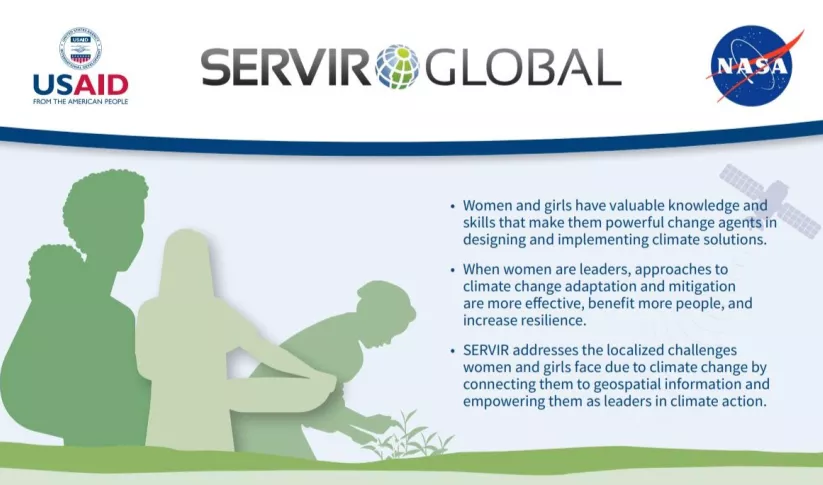
SERVIR builds gender-responsive geospatial services by empowering women and girls as thought leaders in the geospatial and earth sciences so that they can take on leading roles as decision-ma


